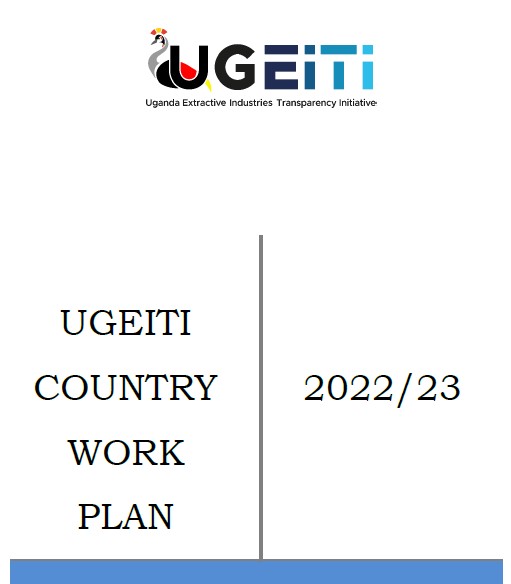
UGEITI COUNTRY WORK PLAN 2022/23
The Uganda Extractive Industries Transparency Initiative (EITI) Work Plan (WP) has been formulated by the Uganda Multi-Stakeholder Group (MSG) to guide its programmes and activities which are in line with the country’s national priorities, and as guided by the requirements set out in the 2019 EITI Standard. The Work Plan 2022/2023 has been developed to consolidate the achievements of the previous UGEITI Work plan, 2020/2021 – 2021/2022, whose goal was ‘to improve the governance of extractive industries in Uganda for the benefit of present and future generations’. The 2nd work plan has maintained the goal of the first work plan, and has been further developed to deliver on Uganda’s core priority objectives for extractive governance through alignment with the National Development Plan (NDP) III.

The Plight of Women in Gold Mining: A Case of Mubende and Buhweju Districts
Structural barriers continue to restrict women from participating in making decisions that affect thier lives. As such, GRA conducted a rapid assessement to ascertain the working conditions of women in gold mining, a case of Mubende and Buhweju Districts. This fact sheet presents key finding from the assessement.

Uganda EITI Workplan 2020 - 2022
Uganda has finalised the candidature application process to join the Extractive Industries Transparency Initiative (EITI). This brings it a step closer to becoming and EITI implementing Country. Download a copy of the Uganda EITI workplan and have an idea on how Uganda plans to implement this initiative which aims at improving the governance of Extractive Industries.

My proud moment: GRA Community Based Monitors story book
This book showcases some of the best reflections as illustrated by the Global Rights Alert Community Based Monitors (CBMs). GRA works with a system of Community Based Monitors in the districts of Hoima, Kikuube, Buliisa, Kakumiro, Mubende, Kassanda, Kyotera, Rakai, Lwengo, Ssembabule and Gomba. CBMs document issues that come from their communities and use the same as a basis for advocating for the interests of their communities. In their community work, CBMs witness and be part of many success stories. Its these moments that are captured in this book titled "My Proud Moment."

The Human Rights Impact Assessment Report for the East African Crude Oil Pipeline (EACOP)
The East African Crude Oil Pipeline (EACOP) is a proposed 1,445-kilometer pipeline that will transport oil from Kabaale, Hoima, Uganda to the Chongoleani peninsula near Tanga port in Tanzania. This Human Rights Impact Assessment report highlights the social, environmental, cultural, and human rights risks of the EACOP for communities located along the proposed pipeline corridor. Co-researched and produced by Global Rights Alert (GRA), Civic Response on Environment and Development (CRED), Northern Coalition for Extractives and Environment (NCEE), and Oxfam, it identifies and documents the actual and potential human rights implications of this major infrastructure project and makes recommendations to the governments and the companies to mitigate the adverse impacts and to increase the positive impacts of this project and advocate for inclusiveness, transparency, and accountability.
